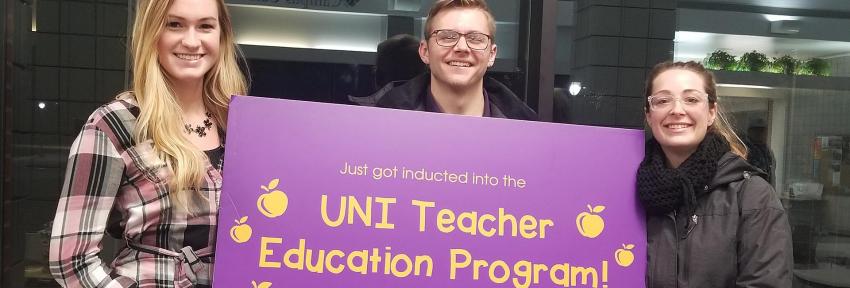Landmark 2+2 distance education program notes 25 years
Just over 25 years ago, the Des Moines Area Community College reached out to the University of Northern Iowa with a problem: Rural areas of Western Iowa were having trouble attracting quality teaching candidates. The solution to this issue is still flourishing today: the 2+2 Elementary Education Program, now the longest-running partnership between a university and community college in the state. As the year turned to 2021, the program celebrated its 25th anniversary with the largest student class in its history.

The 2+2 program offers students who cannot relocate to Cedar Falls the ability to take two years of classes at DMACC followed by two years of upper-level classes delivered by UNI through a combination of in-person, online and hybrid approaches.
The program, which has been available at DMACC’s Carroll, Ankeny and Boone campuses, has graduated 307 students as of May 2021. Many of these graduates have gone on to teach in rural districts that face an aging teacher population and social and financial challenges to attracting qualified teachers.
“We’re providing rural districts that can have trouble attracting qualified candidates with teachers who are trained by the best teaching school in the state,” said Marc Renning, the program coordinator and an instructor with the College of Education.
Graduates rave about the accessibility and educational quality of the program.
“The UNI/DMACC 2+2 program is incredibly convenient, affordable, and understanding of non-traditional students, without watering down the content and importance of learning,” said 2017 graduate Caitlin Bailey, who landed a position in the Waterloo School District upon graduation. “Professors were very flexible and went the extra mile to accommodate our group.”
The success of the program is leading to further opportunity. Beginning in January 2022, the 2+2 program will accept students for new cohorts on an annual basis instead of every two years. To help support this effort, Erin Conlan has joined the College of Education as an advisor and student support specialist who will work out of the DMACC urban campus. The college is also working to strengthen agreements with other community colleges whose students can also take advantage of the 2+2 program after completing their two-year degrees.
